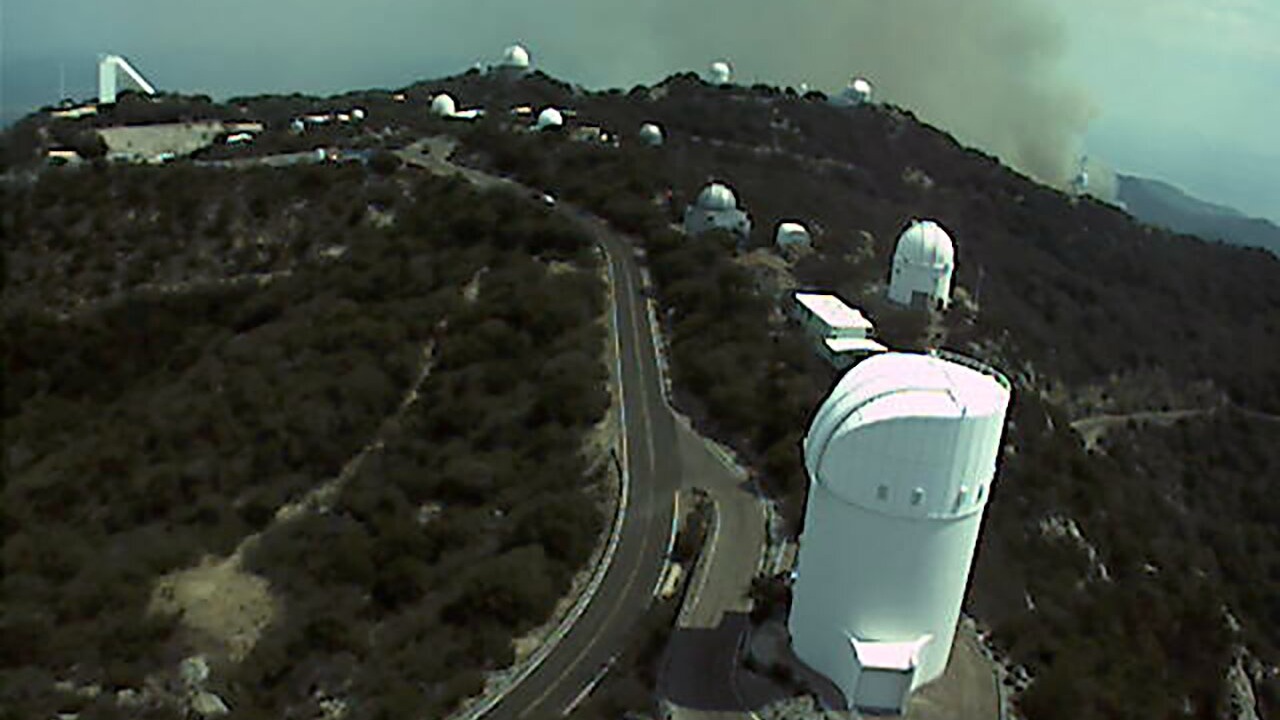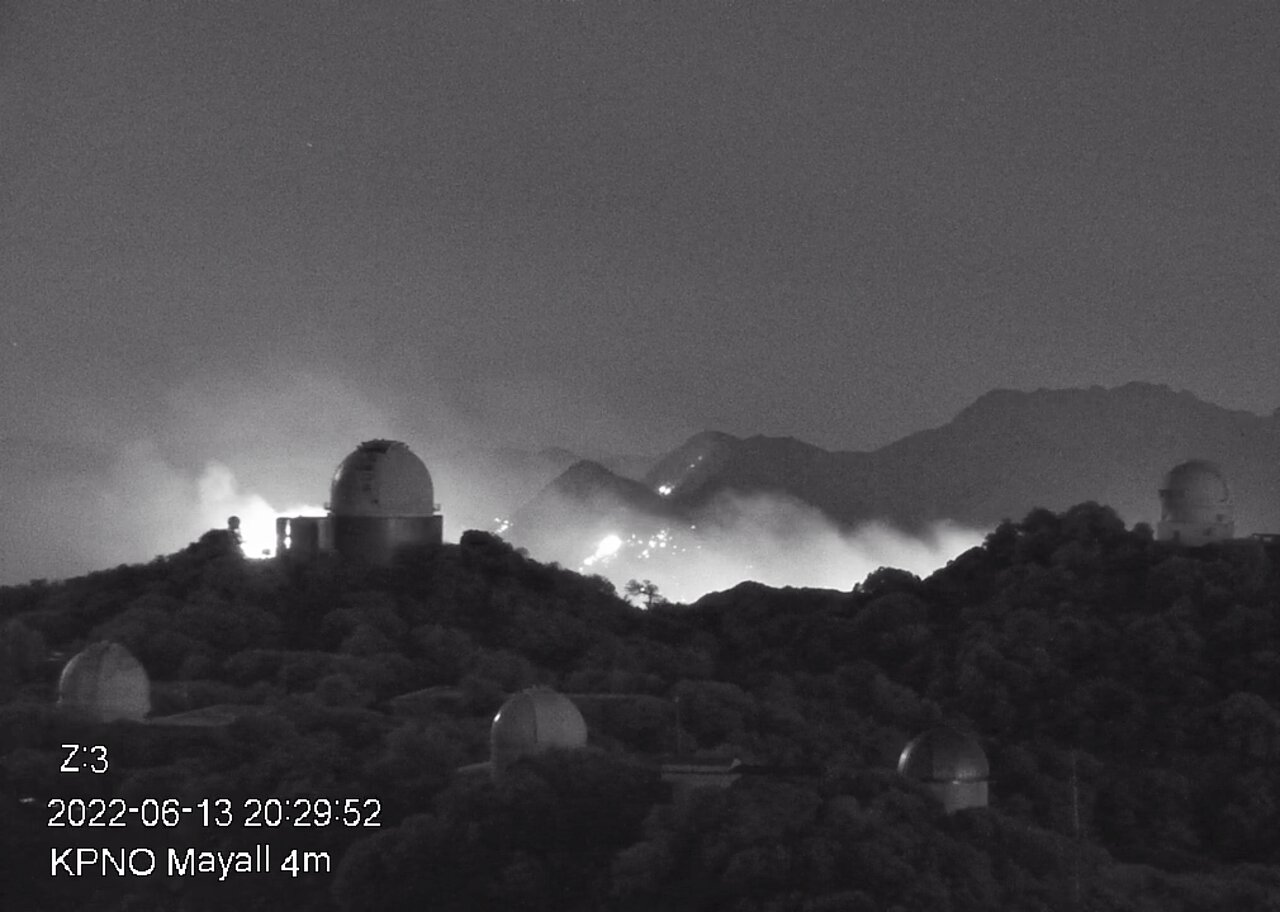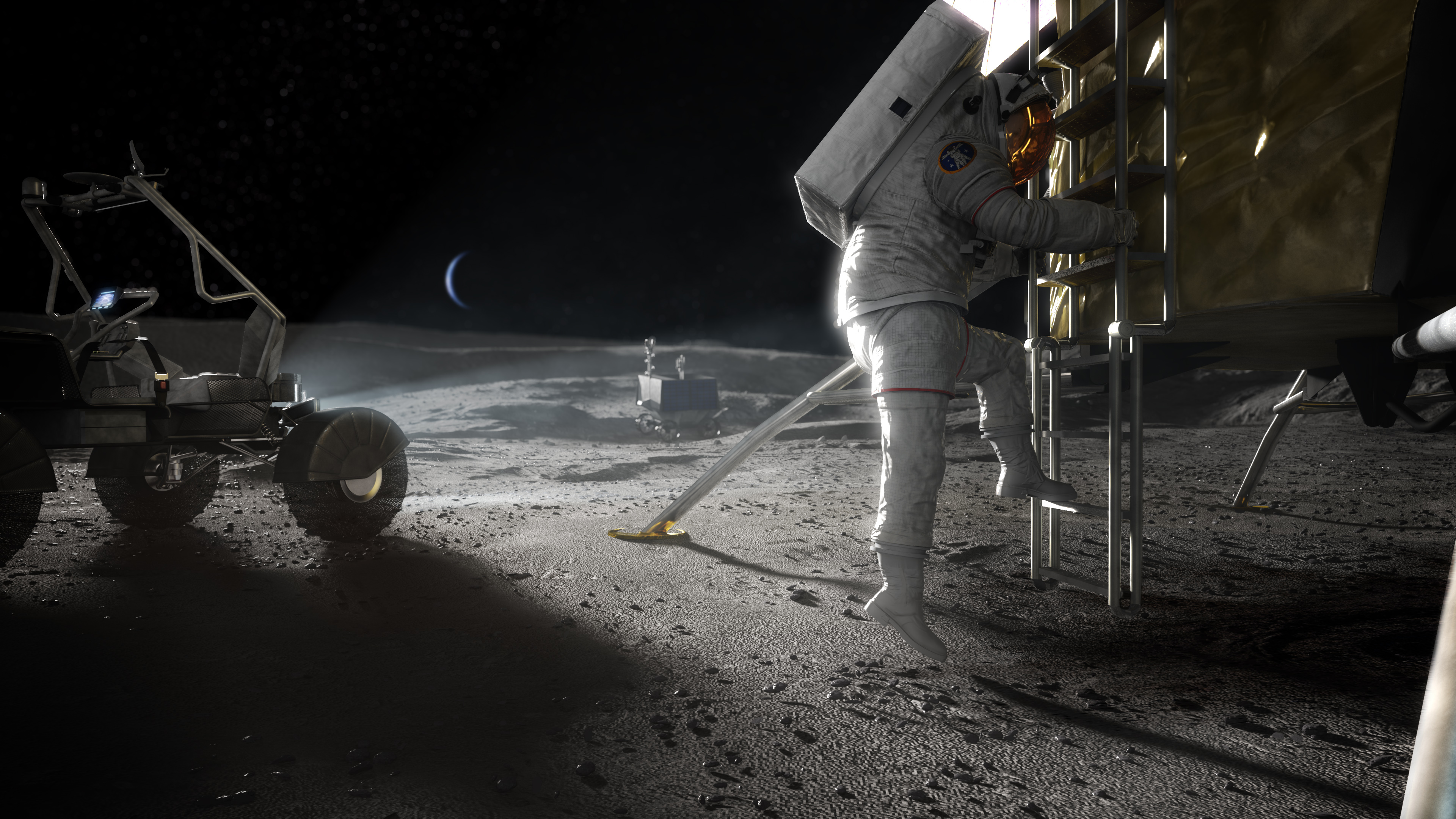Fire shuts down Kitt Peak National Observatory in Arizona
The Contreras Fire covered more than 11,400 acres when the observatory was evacuated Thursday.

A fast-burning wildfire shut down all operations at Kitt Peak National Observatory in Arizona, home to one of the largest collections of astronomical instruments in the United States.
The National Science Foundation, which runs the observatory, made the announcement Thursday (June 16) as the Contreras Fire approached observatory buildings, as visible in images NSF released in its blog post.
"It is burning grass and brush in steep and rugged terrain that is difficult for firefighters to access," NSF wrote of the fire, which had consumed 11,400 acres when the observatory was evacuated. "Hot and dry winds from the south and southwest are pushing the fire to the north/northeast predominantly," officials added.
Related: Satellites watch devastating fires blaze across northern New Mexico
All staff were ordered off the mountain at 4:45 p.m. local time Wednesday (June 15), following activities by a skeleton crew who did "safing of telescopes, equipment and observatory infrastructure," NSF said.
As of Thursday, NSF said a firefighter crew is ready on the summit in case the fire draws closer to the buildings and equipment.

"Hydrants have been tested and fire hoses deployed. The firefighters are dropping large amounts of fire retardant on the southern end of the observatory in an effort to slow the advance," the foundation stated.
Get the Space.com Newsletter
Breaking space news, the latest updates on rocket launches, skywatching events and more!
"In addition, the firefighters are focusing on removing brush on the slopes and have spotters watching for hotspots. The key instruments have been covered with protective wraps and other packaging. The optics on the large telescopes have been covered to protect them from smoke and falling ash," NSF added.
An update on the #ContrerasFire near @KittPeakNatObs: https://t.co/IMujoLAnGl. We continue to be grateful to the firefighters who are dropping fire retardant and removing brush on the slopes. Observ. is evacuated and safety is our top priority. 📷:KPNO/@NOIRLabAstro/@NSF/@AURADC pic.twitter.com/NiwjepvfLwJune 16, 2022
Regular updates about the situation will be available on Twitter, NSF stated. Kitt was founded in 1958 and astronomers have made notable discoveries there in cosmic distance measurements and learning the structure of the universe.
Increasing severe weather across the United States, associated with human-driven global warming, has threatened other observatories in recent years.
In September 2021, for example, a massive California fire came within just a few miles of an alien-hunting radio telescope array from the SETI (Search for Extraterrestrial Intelligence) Institute, known as the Allen Telescope Array.
And in September 2020 and September 2009, separate fast-burning wildfires drew dangerously close to Mount Wilson Observatory, also in California, an observatory best known for Edwin Hubble's discovery that the universe is expanding.
Follow Elizabeth Howell on Twitter @howellspace. Follow us on Twitter @Spacedotcom and on Facebook.
Join our Space Forums to keep talking space on the latest missions, night sky and more! And if you have a news tip, correction or comment, let us know at: community@space.com.

Elizabeth Howell (she/her), Ph.D., was a staff writer in the spaceflight channel between 2022 and 2024 specializing in Canadian space news. She was contributing writer for Space.com for 10 years from 2012 to 2024. Elizabeth's reporting includes multiple exclusives with the White House, leading world coverage about a lost-and-found space tomato on the International Space Station, witnessing five human spaceflight launches on two continents, flying parabolic, working inside a spacesuit, and participating in a simulated Mars mission. Her latest book, "Why Am I Taller?" (ECW Press, 2022) is co-written with astronaut Dave Williams.
